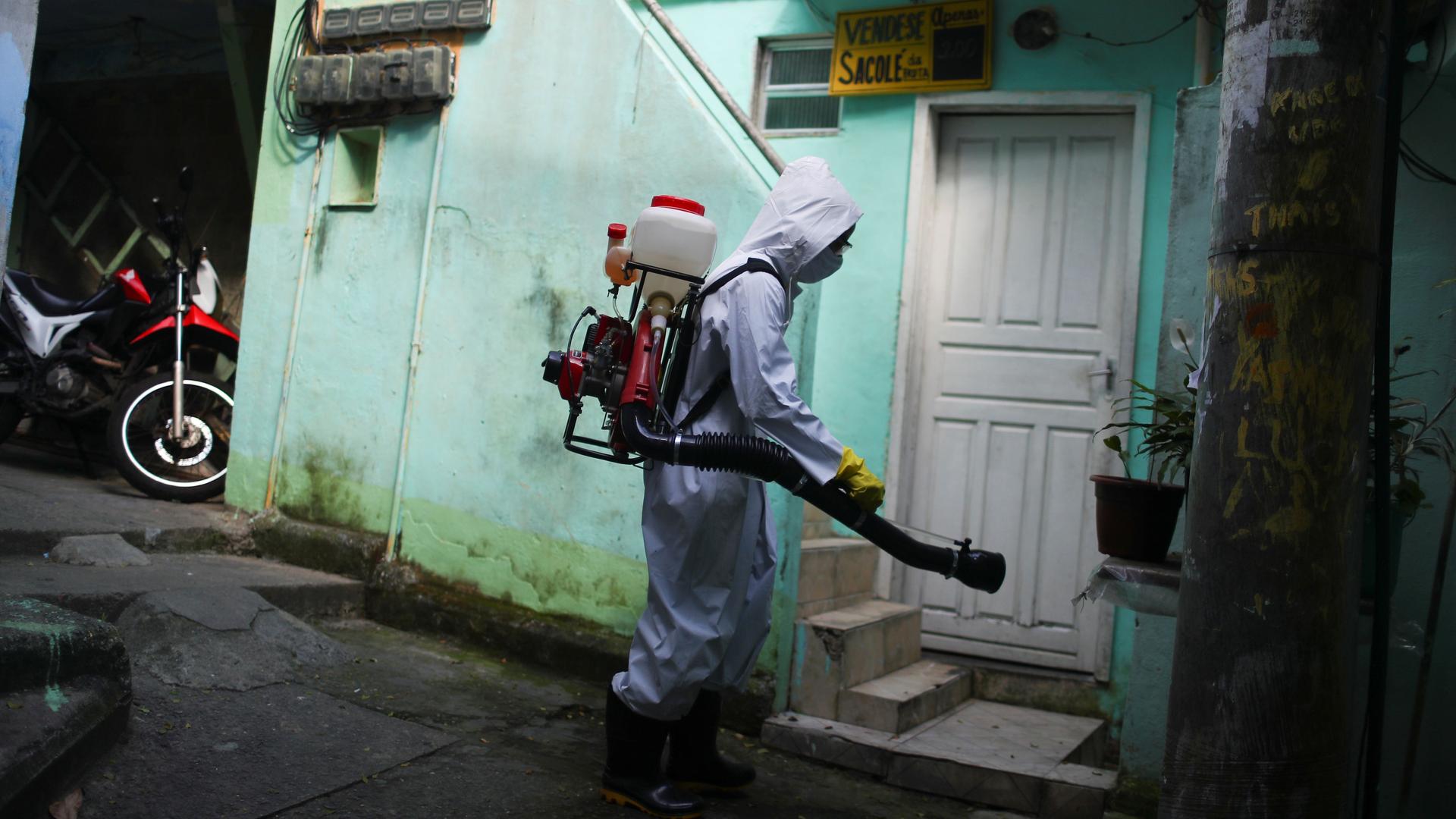In the last few days, shaky cellphone video has emerged of the first hospital in Brazil to be overwhelmed with COVID-19 patients. It’s in Amazonas state, where many Indigenous people live, and where there are more than 2,000 cases of the coronavirus.
Doctors have complained about a lack of ventilators and protective gear. The video shows corpses lying on beds next to patients receiving care.
Related: CES convention may have spread coronavirus throughout the US — and world
Thiago de Souza Amparo, a lawyer and professor in São Paulo, has examined numbers released by the Brazilian government about the demographics of COVID-19 patients. São Paulo is the epicenter of Brazil’s coronavirus outbreak. Racial information for many patients is missing, but there’s enough data for Amparo to see a pattern that’s also been evident in the US: While anyone can get the coronavirus, there appear to be dramatic racial disparities in who actually dies from the disease.
“The number of black people who died because of the coronavirus is larger than the white people. It’s not a coincidence.”
“The number of black people who died because of the coronavirus is larger than the white people,” he said. “It’s not a coincidence.”
Like the US, Brazil enslaved millions of Africans and their descendents for hundreds of years, and afterward, allowed systemic inequalities to continue. Today, black people in Brazil are overrepresented in prison populations and more often face police brutality. They’re more likely to live in poor areas and have preexisting health conditions — in part because of a lack of access to healthy foods.
A disproportionate number of black people work jobs that make social distancing difficult — such as housekeepers and bus drivers. Yet, Amparo said, Brazil has resisted examining its racial disparities.
Related: Libyans are caught between coronavirus and conflict
“We are actually very far from being able to take race seriously and to see race as an important factor,” said Amparo, who is part of a coalition of major black organizations in Brazil petitioning the government to require collection of racial data for COVID-19 patients. “My fear is that this will become an invisible disease — that we are not going to actually document it and try to fight back.”
That’s a fear shared by many across the world. A growing chorus of advocates is urgently calling for governments to take steps amid the coronavirus pandemic to document racial information.
“We can’t fix a problem that we refuse to acknowledge.”
“We can’t fix a problem that we refuse to acknowledge,” said Shilpa Venkatachalam, associate director of patient-centered research at the Global Healthy Living Foundation.
Not only should countries be systematically collecting racial data, Venkatachalam said — they should be collecting it in a standardized way so it can be shared with other countries.
“We’re a globalized world,” she said. “We have to start sharing data in the interest of our communities so we can advance our understanding of what countries are facing in terms of what inequalities exist in countries, and also across countries.”
Related: In Greece, refugees and migrants turn to each other to get through coronavirus pandemic
But many countries are far from that goal. In the UK, there’s evidence that people from black, Asian and minority ethnic backgrounds, or BAME, are overrepresented in critical care units, and among health workers who have died. Still, hospitals aren’t required to record patients’ ethnic information. The British Medical Association called the lack of racial data on the coronavirus patients a “scandal,” prompting an announcement on April 19 from Robert Jenrick, the secretary of state for the British Ministry of Housing, Communities and Local Government.
“There does appear to be a disproportionate impact of the virus upon BAME communities,” Jenrick said. “It’s right that we do thorough research swiftly so we can better understand it and take any action that is required.”
Taking action is the key, said Dr. Farah Shroff of the University of British Columbia.
“It can’t just be about data alone. Data doesn’t necessarily translate into programs that make a huge difference for communities of color.”
“It can’t just be about data alone,” she said. “Data doesn’t necessarily translate into programs that make a huge difference for communities of color.”
Shroff said governments need to partner with minority community leaders to ask patients specific questions about language, cultural barriers, housing, income, employment and neighborhoods — to find out how health care systems should change, and then make those changes.
Related: US and Mexico are blocking kids from asking for asylum because of coronavirus
She points out that Canada has done that in the past. But thus far in the COVID-19 pandemic, some Canadian provincial officials have said they have to prioritize tracking patients’ ages and chronic illnesses rather than racial data. Shroff hopes they change their minds.
“It can’t just be enough to say ‘racism is bad for us.’ That’s old hat. We know that,” she said. “We’ve got to move beyond that and really change.”
But vulnerable populations have reason to be skeptical.
“Well, historically, we’ve had things like allegations of coerced sterilization,” said Alison Tedford, an Indigenous writer and patient advocate in British Columbia. “We’ve had birth alerts where health care professionals will notify child care protection services when Indigenous children are born. There’s a lot of reasons to not have a lot of trust.”
